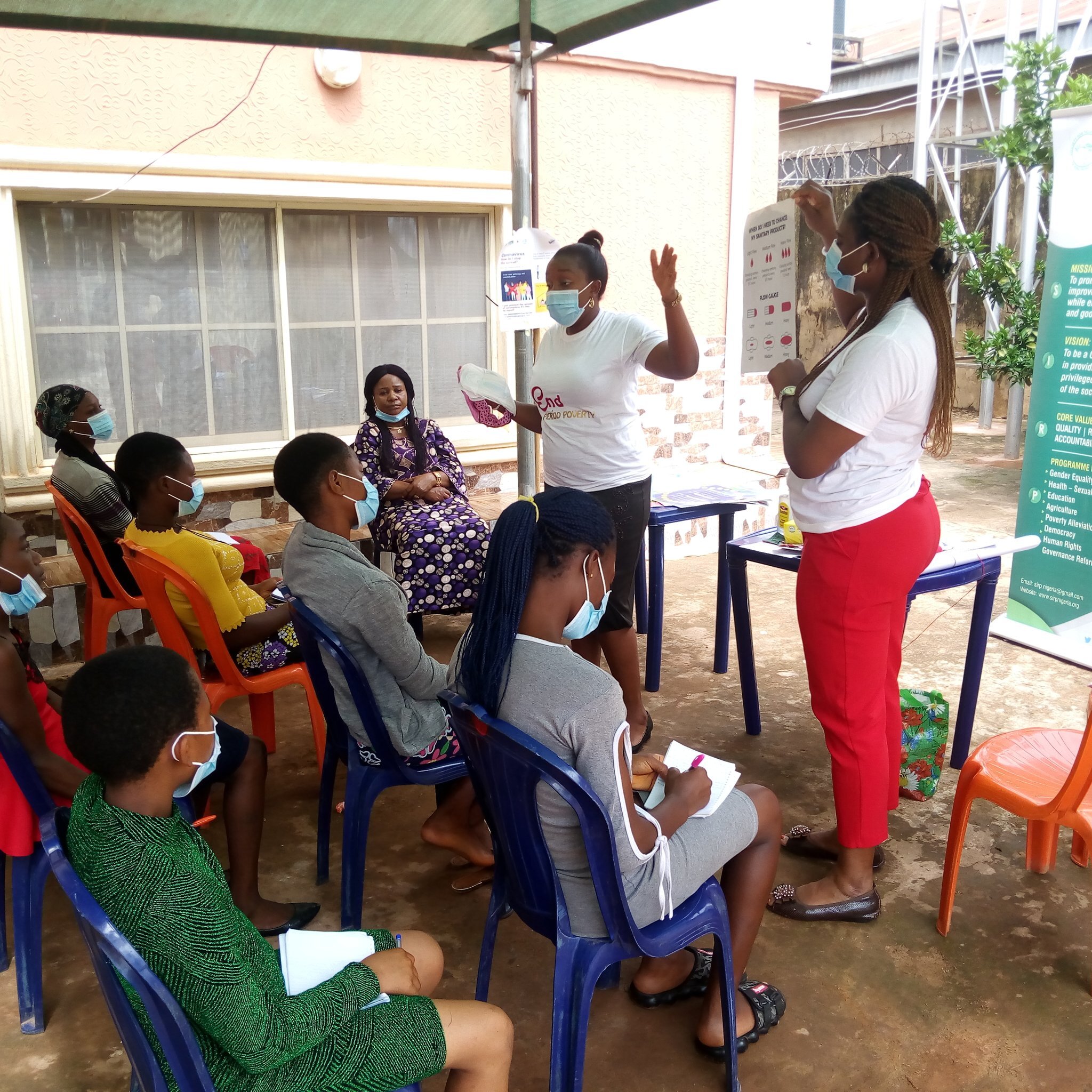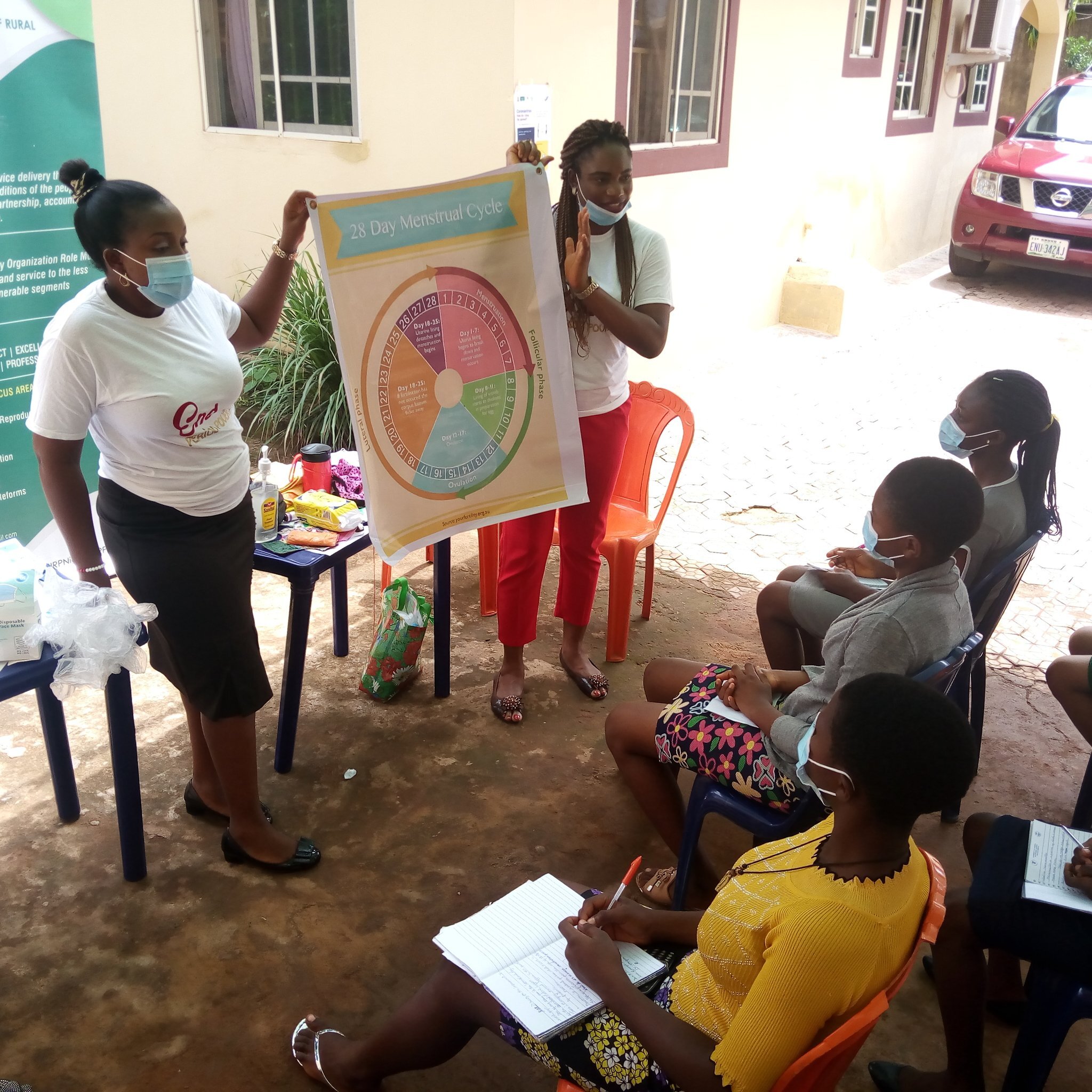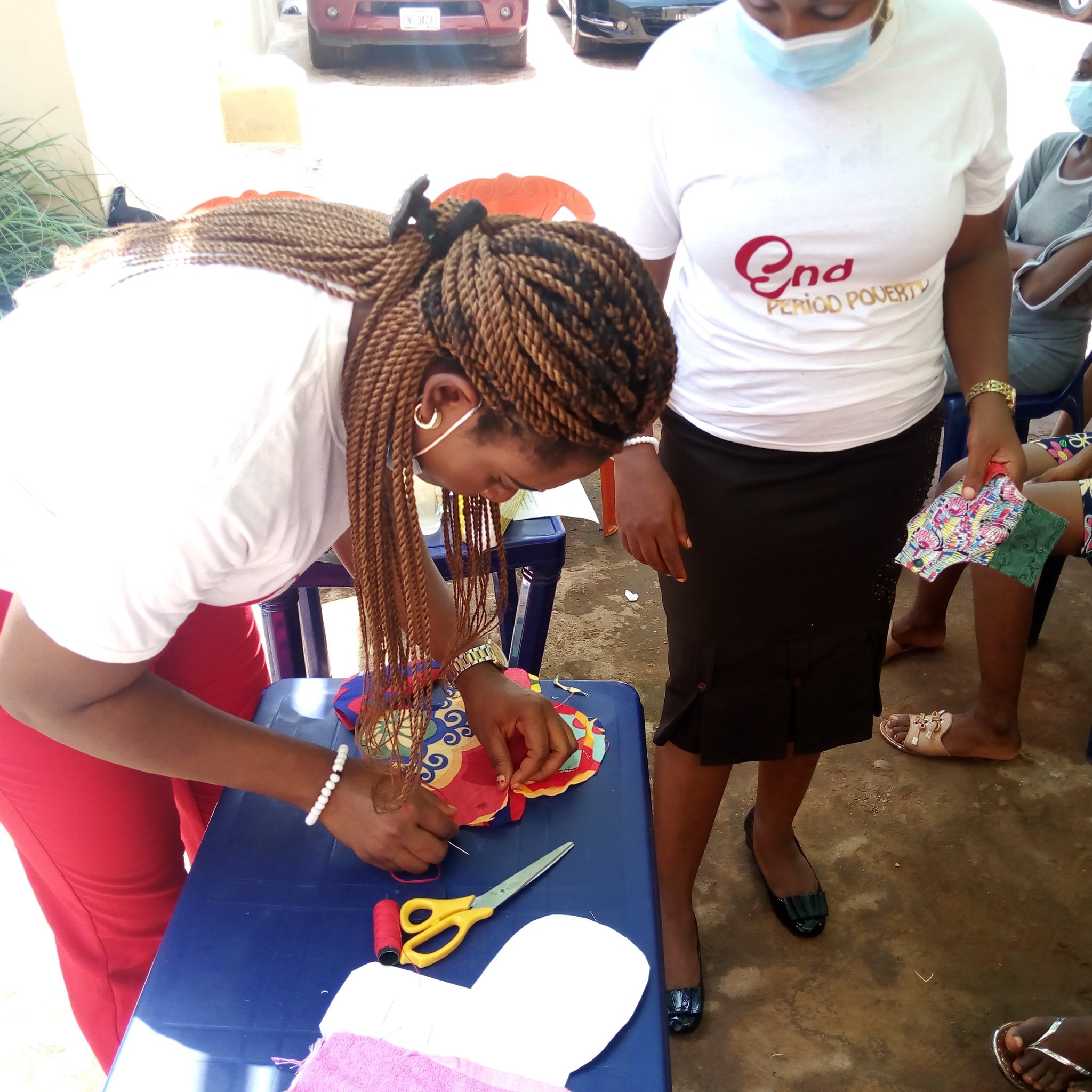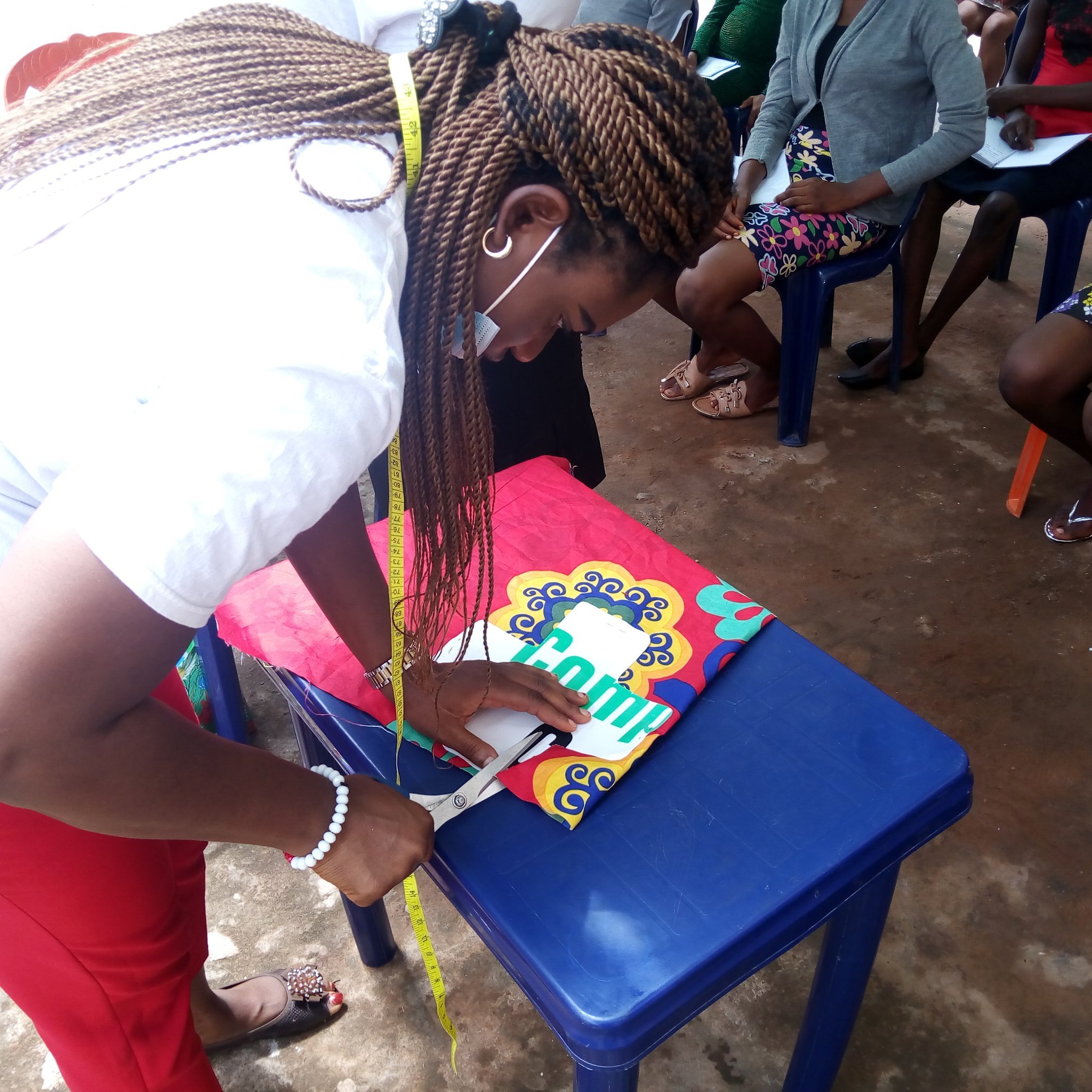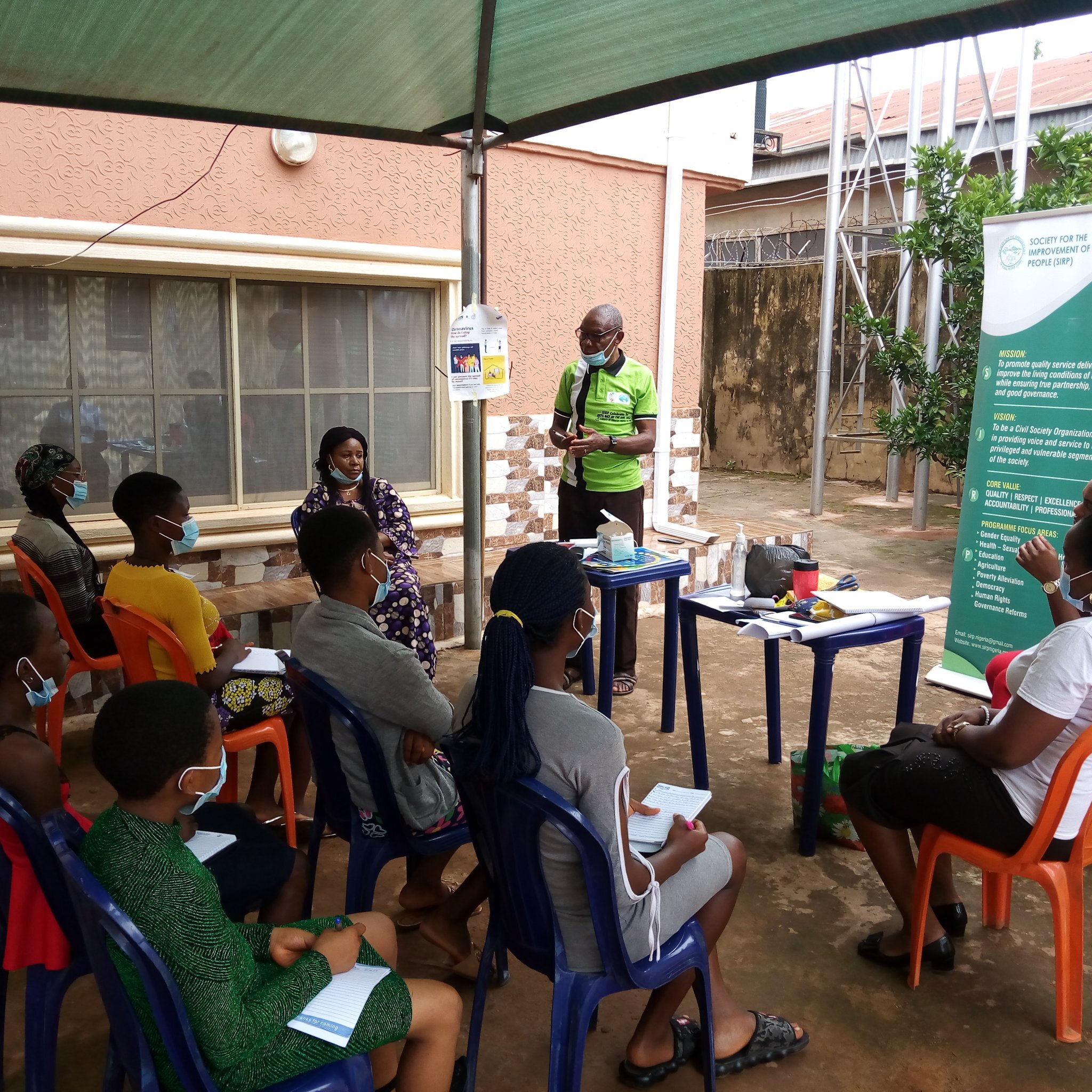In the fifteen years it has taken to build Rockflower Partners, one thing has been central to our mission, and that is to ensure that every single partner feels seen, heard and to know that their lived experiences and voices matter. Finding a way for them to translate that agency into a shared platform with access to best practices, challenges and solutions has long been a goal, but as a small team it has been tough to facilitate. However, after the January 2022 partner survey responses made clear, now more than ever there was a need to find a way to make this happen.
So this summer we embarked on our first Partner Workshop Series. By inviting all of our current partners from across twenty two countries to come together for a five week series of zoom meetings, they were able to learn directly from each other, as well as from Rockflower Board Directors and Advisory Board members. Each week throughout July, we hosted a conversation on the Rockflower Five Key Framework: Economic Empowerment, Maternal & Reproductive Health, Education, Access to Food & Water and Peace & Security.
Choosing four speakers from within the partner community and the wider Rockflower network, with specific experience on the designated key, allowed for a broad but deep exchange of experiences, challenges, ideas and thoughtful connection. Each session finished with thirty minutes of open discussion in which attending partners could ask questions, contribute their own experiences, and get to know each other better.
Many important findings have emerged from this workshop series. Perhaps most gratifying has been the overwhelmingly positive feedback from partners at their delight in being able to see themselves mirrored in so many of their fellow community based organizations and social enterprises around the world. The sense of not being alone in some of these often impossible scenarios held incalculable value for all of the participants.
Another very important insight from the workshops was the degree to which each one provided a thread of conversation that could be woven into the following week’s key topic. Economic Empowerment led to conversations about women's power over their own bodies in Maternal and Reproductive Health, which led on to the importance of continued secondary and tertiary Education for women and girls. In the conversation on Access to Food and Water, addressing the existential threat of climate change and the rising cost of food as drivers of conflict and instability, touched on many of the issues discussed in the final workshop on Peace and Security.
Rockflower believes in the philosophy of “Radical Idealism, Practically Realized”. We deliberately positioned these workshops to provide an overview of the larger global perspective, but then demonstrated how armed with that knowledge, partners could use it in the precise application of practical solutions to their everyday problems. Partners sensed hope in the sharing of ideas and the meaningful engagement and connection with each other, which has led to some new substantive solutions and ideas. We are witnessing just how strongly this connective root system will impact the growth of the Rockflower garden as we build our “seed to canopy” funding model. Please read more for some of the key takeaways from each workshop.
Economic Empowerment
Roseline, Haja, Charlot and Constance started us off with a vibrant and lively conversation on Economic Empowerment. Not surprisingly with four powerhouse African women leaders, the discussion was frank, heart centered and of course filled with a great deal of humor.
The discussion began with an opportunity to talk about what it really meant to be “empowered”, and more specifically “economically empowered”. An overused word in many instances, we focused on the growing need for access to capital, training and business opportunities that actually lead to funding, and the best way to access markets. This laid bare the fundamental reality of just how much women contribute to the foundational strength of the economy of any nation.
Charlot shared her deep frustration at the misconception that African women entrepreneurs need to receive ongoing training before they can access funding. She reflected on a quote that summed it up for her:
“The most over-mentored and underfunded woman is the African Female Entrepreneur.”
As a young mother of 16, growing up in the slums of Mukuru in Nairobi, she had trained herself on the skills of entrepreneurship out of the sheer necessity of having to feed her child.
This was echoed by Lucy Odiwa, of WomenChoice Industries later in the Q&A section, who shared the countless number of times she had been asked to attend training so that she could “train” to be a viable candidate to receive funding, only to be told to go on another training. Whereas men are trusted to be given the funding right from the start without the requisite “training”.
“The problem with the world is imagining that if we are going to give women the chance we first have to set them up for success, but they have already set themselves up for success and all you have to do is trust them and get out of their way” - Charlot Magayi
Roseline and Haja shared similar experiences in accessing funding for their community based organizations - African Youth Alliance in Cameroon and FOWACE in Liberia. The barriers included being unable to receive funding without an audit or extensive list of previous project impact, but as they aptly pointed out, how can you show that before you have been given funding to bring your vision to life? The suggestions of “go create some impact and then come back and tell us how you did so we can decide if we want to fund you”, are so frustrating when you cannot do that without funding in the first place.
Additional practical advice for the partners on the call from Roseline was to suggest that they maintain an internet presence even with the simplest of websites and/or social media. Continue to keep growing networks and always ask for referrals, this is what builds trust and confidence.
Haja described the importance of women’s savings groups in being not only a place to learn and be mentored on business management and savings but as a way to come together and share problems and experiences. This sense of community and distributed leadership is what has inspired so many of the women to continue with the program.
Constance was keen to express a plea to financing institutions at all levels to acknowledge the unequal processes in place for women entrepreneurs. Stop asking for collateral and instead see women’s bold visions for what they are worth. Empowerment for Constance means the ability to make decisions for yourself and this is what led to her vision for the Women Advocacy Project. To prevent child marriage in four districts around Harare, Zimabawe, finding a way to provide economic empowerment was essential. This led to the creation of Clean Girls Soap, a social enterprise, run and managed by girls who had previously been on track for child marriage.
The conclusion: It's not very complicated - give women the money and they will return it ten fold to their communities.
Maternal & Reproductive Health
The conversation on Maternal & Reproductive Health was extremely informative, whilst also deeply personal. Lucy, Dr. Chris, Somto and Audrey, shared wide ranging perspectives on the cultural taboos, personal challenges and direct assault on menstrual health hygiene, family planning, and choice and consent over women’s bodies.
Despite these organizations being very different in size and mission, they share a common goal - to ensure that more girls and young women have access to reproductive education and menstrual hygiene products, which results in greater retention in secondary school, greater accessibility to higher education and increased employment opportunities. Lucy and Audrey who both run menstrual hygiene social enterprises - WomenChoice based in Tanzania and Be Girl currently working in several countries in Latin America and Africa, shared their personal experiences as to what led to their involvement in menstrual health.
Lucy gave a brutally honest assessment of her own experience of starting her menstrual cycle, and the accompanying shame and embarrassment that led her to want to ensure that other girls did not suffer a similar fate by developing affordable menstrual hygiene products and education materials.
“It is really important for a woman and a young girl to understand themselves initially, first of all as an individual, to know their worth, to know how they should be handled actually…Girl empowerment is nothing dangerous, it simply tells a girl that you are free to have a dream of your own, you are free to have a vision.” - Lucy Odiwa
Audrey, although based in Washington DC, had spent time working on cross-sectoral issues in Ethiopia and saw how menstrual health for young girls was a key leverage point in ensuring access to education and mental well being. She shared how Be Girl is extremely focused on ensuring young girls receive the education they need to know and understand their bodies and showed us an example of the manual period tracker that Be Girl has developed.
Dr. Chris and Somto from the Society for the Improvement of Rural People in Enugu State, Nigeria, were delighted to be able to contribute to the conversation, given that there is so much taboo around men discussing these topics.
Dr. Chris explained, “It’s a taboo almost, to talk about issues around menstrual poverty or menstrual issues” and went on to describe how they work to address many of the myths around menstrual hygiene and the misinterpretation of religious and cultural beliefs which can sow disinformation and doubt on an already complicated topic.
As Gender Lead for SIRP, Somto reiterated: “The importance of men and boys can not be overemphasized …It is so important to have men and boys as allies.” - Somto Ugwu
It was indeed extremely gratifying to see so many men on this call. Tonny from Hope for the Future, Uganda made the extremely salient point that individuals and communities should continue to question why governments spend trillions of dollars on defense when the equivalent spent on the health and wellbeing of women and children would generate exponential benefits in security for nations. This was an issue we would revisit in our next three workshops.
Education
Despite a great deal of progress in ensuring more girls have access to education, today there are still 130 million girls who lack the ability to go to school. One of the most devastating side effects of the COVID pandemic has been the impact it has had on girls education worldwide, particularly in countries such as Uganda where schools were closed for over 2 years.
However, this period of time has also seen a fast tracking of many innovative solutions in the delivery of education. By upending traditional formats and looking at cost effective ways to ensure those in rural communities with little access to the internet gain access to learning, there has been a real momentum to use this crisis as an opportunity.
With Tania, Siddique, Miriam and Dancan, we were able to hear from leaders from a cross section of understanding and experience regarding the value of education across different cultural and social contexts from Colombia, Pakistan, Kenya and the USA.
We talked about existing barriers to accessing education including the impact of poverty, access to technology and digital education and how to broaden the types of education girls receive by looking toward global future needs.
One of the most important themes to emerge from the workshop was the concept of role models and representation. When discussing the hugely significant impact of the election of Francia Marquez, the first female Afro Colombian to hold the office of Vice President, Tania stressed how monumental this was for poor indigenous women to understand that there was actually a path out of poverty through education and mentorship, together with sheer bravery and determination.
“It is always important that we keep representation in mind, because we cannot be what we can not see” - Tania Rosas
Another big topic was that of access to information. Dancan wanted to point out that similar to representation you do not know what you are capable of until you have a better understanding of what resources are available to you. Key to his work with Jiwo Paro is to ensure a wider distribution of information so that women can access their own inborn talent.
Siddique stressed the importance of engaging the decision makers at the government level who have control over the gender budgets. A key component of the success of the Bridging the Digital Divide: from Colombia to Pakistan, the Rockflower pilot project being implemented by Tania and Siddique, has been the ability to act as a catalyst for the Ministry of Education to scale up the project.
Miriam’s perspective as a lawyer brought a wider lens to the subject of Education by linking to an understanding of fundamental laws and rights, “There are laws in place for a reason, you are entitled to live a better life… and this can often lead to more political and civic engagement… If you understand your fundamental rights… then you can engage in the political process” - Miriam Foley
But time is running out and as Tania reminded us at the end of the workshop, there are so many young people whose potential is being stymied through sheer lack of access and opportunity.
Access to Food & Water
The number of people classed as “acutely food insecure” by the UN before the Covid crisis was 130 million, but this has since increased to 345 million due to the crisis in Ukraine. 50 million people are just one step away from famine. The rising cost of fertilizers and fuel, and the ongoing threat of catastrophic weather, is adding to an already heightened sense of fear and chaos, creating the perfect storm for social unrest, political instability, forced migration and the continued deep suffering of already marginalized communities.
Against this rather gloomy backdrop, we had an opportunity with Brianna, Lucas, and Anandan (Twisi was unable to join us on the day) to provide some insight into the different types of food and water security issues at a local level, in the very different geographies of The Gambia, Nicaragua and India.
Lucas and Brianna discussed their respective experiences and approaches to working as outsiders in community based programs and social enterprises. As a vet and social entrepreneur, Brianna has been able to bring her expertise without enforcing or prescribing solutions not generated by the community. Lucas shares this ethic and has worked closely with the women of L’Astillero to ensure that all decisions were participatory, in particular the budgeting and agroecology center planning. Humility was the key word, and prompted discussion on the value of the traditional and indigeneous learned experience.
Anandan held particular expertise in this regard, detailing his work in ensuring indigenous knowledge on how to purify water is preserved through oral and written tradition. Local knowledge is key to transforming systems and communities.
Lucas and Anandan also both referenced the ability of communities to build seed banks as a practical tool to ensure food security. Lucas detailed his own revelations when building the Center of Agroecology, that the reason that he could not access seeds was because they were all controlled by a few large multinational corporations. These were the same choices available to the local community of Astillero. The other partners on the call really liked the idea of seed banks and made plans to cross pollinate ideas in this regard.
We also discussed localization vs globalization of food supply chains and the importance of diversifying farms and livestock as one form of mitigation against the effects of climate change. Brianna highlighted the difference between food security and food sovereignty, and how because of international food and trade policy so many people in emerging economies do not have ownership over their food production. Nutritious foods are cost prohibitive, for example milk is 16 times more expensive than rice in The Gambia, which is why the focus at Gambian Goat Dairy is to deliver cost effective animal source protein.
We touched on the issue of land rights for women and referenced a recent Landesa paper "Women and Dirt" in which they make the case for gender parity in land rights as a solution to issues of food security.
One thing was clear - waiting for the international community to fix climate change was too much of a long shot for so many of our partners. They need solutions today.
“If the community of Astillero waits for the global community of politicians and diplomats to solve climate change, they are all going to be dead by the time that’s done so we need to prepare for building resilience on the ground” - Lucas Worsdell
Peace & Security
By providing a broad overview as to what peace and security means in different contexts and settings, but then to show how this directly affects communities and individuals, we were able to ensure that the partners on the call could draw a line between the information shared and their daily experiences.
Peace and Security is not just the absence of war, it is a multi-layered understanding of the needs and wants of different groups and communities, at a personal, local, national and international level.
With Dr. Alice, Rajaa, Sahana and John, we had a wide ranging conversation on what it takes to develop systems and strategies to counter violence, greed and injustice. All of them have deep experience and a personal commitment to building a world in which peace is paramount.
Dr. Alice delivering her remarks in French, (our grateful thanks for translation by Will Burgat) brought us into the heart of the issue, by describing the daily task of helping victims of atrocities become survivors and then contributors in the redesign of their communities through their lived experience. There was a deep weariness in her voice as she described the continued witnessing of rape and murder and the daily repercussions of a reality in which Security Resolution 1325 does not actually live up to its intention. There are still not enough women involved in the concrete actions to bring about peace. In 2020 she was involved in talks with armed groups in order to bring more women to the discussion but was met with push back and the suggestion that they should only come if they bring women with weapons to the talks. Her plea was to ask how the UN can find a way to insist that more women from civil society are present at the “real peace talks” not just the secondary track two discussions.
Rajaa shared the deeply personal experience of her father, a policial and human rights activist, having been detained and tortured in a Syrian prison for almost ten years of her life. When the uprising began in Syria in 2011 she was studying for her PhD in Mathematics in the US, but returned home to Syria knowing that she had to be involved in documenting the human rights abuses. She started CCSD with a group of activists determined to see a better future for the women of Syria, and continues to engage with civil society activists, youth leaders and all those wishing to see a greater emphasis on the women, peace and security agenda. She is extremely keen to ensure that all the lessons learned from the last ten years of work in Syria be shared with those in conflict situations so that all of the rich resources and learnings can be put to good use.
Sahana gave us a detailed analysis of the work of bringing multi stakeholders together in order to ensure the agenda of Women, Peace and Security is put front and center in the minds of policy decision makers. She applauded the partners on the call for their bravery and willingness to imagine a better and more peaceful world and for their consistent daily work to make this a reality. Indeed, Security Council Resolution 1325 came from women in the Global South saying to those in the North - “What you are doing is not working, we need a better way” . She also reiterated the need for a collective vision of what peace would look like, and to take a step back to assess what is working and what is not. By being willing to co-create something better there exists a real potential for a more secure world. .
“Women want to change the dominant security narrative … for the benefit of everyone. We can change the narrative of what is possible by seeing through a feminist lens” - Sahana Dharmapuri
John took us deep into the reality of the “captured state” - which is what happens when war economies take hold and become a perpetual money making machine for a few corrupt individuals. In order to tip the balance for those living in these countries who want an even playing field, the importance of using the tools of network sanctions and challenging the incentive structures that reward violence and authoritarianism cannot be overstated. John’s decades of work in the DRC meant that he was particularly in tune with Dr. Alice’s deep feelings of frustration and shared how his own journey had evolved as an activist, to focus on dismantling the means by which war machines and kleptocracies thrive. This was a timely discussion, as his piece in Project Syndicate last week demonstrated on the occasion of Secretary Blinken’s visit to the Congo and Rwanda.
We finished with a conversation on why Peace and Security is so difficult to fund, and not just in the world of philanthropy. As the world keeps spending trillions of dollars fighting wars only to rebuild after the destruction, a tiny portion of that invested in prevention would bring untold dividends.
“It's so hard to quantify the results of investments in peace” - John Prendergast
Conclusion:
This was just the beginning of a series of workshops that Rockflower will be producing throughout the year as we digest the conversations and dig deeper into other ways to ensure that our partners have access to a shared platform of tools, techniques and approaches that can continue to contribute to the improvement of life and well being for so many women and girls and their communities.
We are grateful to everyone who participated and thank all of our speakers for their insights, vision and clarity.









